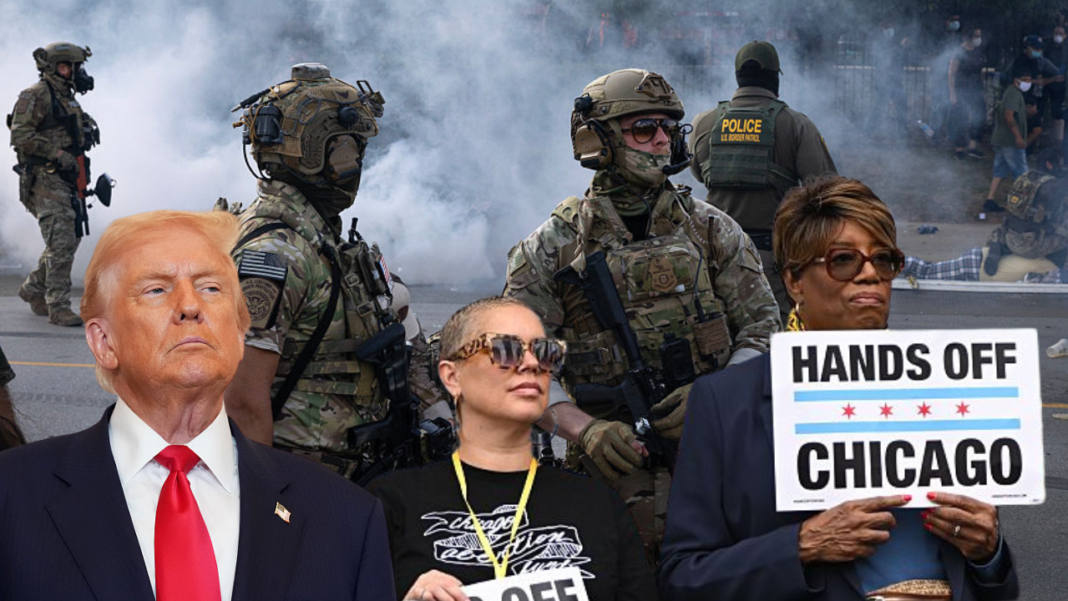Halloween in Chicago: Federal Enforcement and Community Concerns
Every Halloween, children and families across Chicago gear up for a night of costumes and trick-or-treating. However, this year, the anticipation is tinged with apprehension as federal law enforcement plans to maintain a strong presence in the city. Despite Illinois Governor JB Pritzker’s request to pause Immigration and Customs Enforcement (ICE) operations for the holiday, Homeland Security Secretary Kristi Noem stated that federal agents would be “in full force.”
Federal Enforcement: A Commitment to Safety?
Secretary Noem emphasized that the responsibility of federal agents extends to ensuring safety for families on Halloween. In an interview with Fox News, she declared that their efforts are focused on arresting violent criminals, asserting, “Every day in Chicago, we’re arresting murderers, child pedophiles, and those who have perpetuated assault and pornography against children.” This rhetoric frames the federal enforcement mission as a protective measure against crime.
The underlying message suggests that the official narrative prioritizes the perceived safety of Chicagoans, reinforcing the idea that illegal immigration contributes to local crime. Yet, this perspective has faced heavy scrutiny from community members and city leaders who argue that the presence of federal agents often leads to fear rather than security.
Community Reaction: A Sense of Fear
Local leaders and residents have voiced significant concerns regarding the increased surveillance and enforcement tactics employed by federal agents. Activists argue that such measures disproportionately target communities of color, sparking tensions and fears of violent encounters. Instances of aggressive tactics, including nighttime raids, have left many Chicagoans feeling unsafe in their own neighborhoods.
For example, during a recent ICE raid in the South Side of Chicago, numerous residents were awoken in the night; reports indicated that women and children, many of whom were U.S. citizens, were zip-tied and detained. This incident illustrates not only the invasive nature of these operations but also the profound psychological impact they have on innocent families.
The Struggle for Justice: Voices from City Leadership
Chicago Mayor Brandon Johnson has publicly condemned these federal tactics, labeling them “racist” and dehumanizing. His passionate remarks highlight a growing divide between city officials and the federal government regarding how public safety is framed and enforced. Calling the treatment of families “sick,” he argues that such aggressive actions strip away the humanity of those involved.
Mayor Johnson’s statements resonate with historical injustices, pointing out that dehumanization opens the door for people to justify harm against marginalized groups. He noted, “When you have Black babies being thrown in the back of vans, zip-tied in the middle of the night… that is nasty, it’s vicious.” These comments evoke a sense of urgency, urging the public to recognize the broader implications of such policies.
Public Protests and Local Advocacy
The community’s frustration has prompted protests against ICE operations in Chicago. Demonstrations have frequently escalated, with incidents of tear gas deployment during rallies and even near schools. Residents and activists argue that such actions exacerbate already fraught relationships between the community and law enforcement. The use of riot-control measures has further amplified local outrage, especially among families concerned for their children’s safety.
Among those protesting are various advocacy groups pushing for policy changes that prioritize community welfare over aggressive enforcement tactics. Many activists contend that a more humane approach to immigration enforcement is essential for fostering trust between federal agents and the communities they serve.
The Broader Context: National Conversations on Immigration
The situation in Chicago cannot be divorced from the larger national conversation surrounding immigration policy and law enforcement. The debate often centers on the balance between enforcing laws and maintaining community trust. As federal presence increases in major urban areas, cities like Chicago find themselves at the forefront of this contentious issue.
This Halloween, as children prepare to collect candy, the atmosphere remains charged with tension and uncertainty. Chicagoans face not just the thrill of costumes and festivities but also the very real specter of federal enforcement that complicates their experiences and memories of a night traditionally filled with joy.
For many, Halloween is about celebration, community, and safety. Yet this year, the holiday serves as a stark reminder of the ongoing struggles facing marginalized communities and the often daunting presence of law enforcement.



